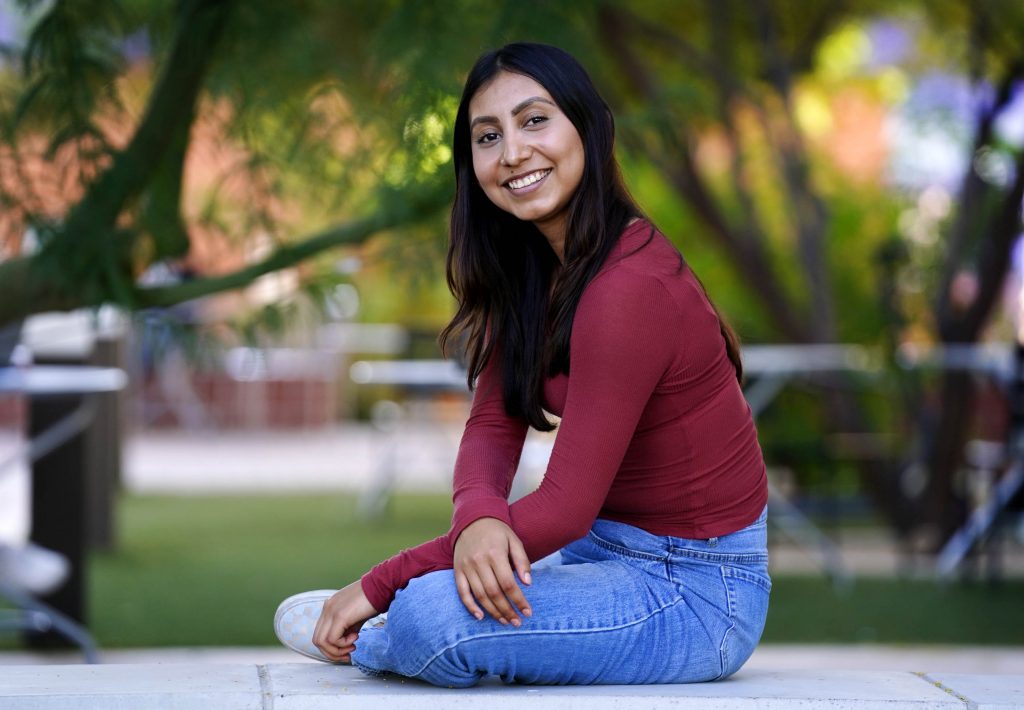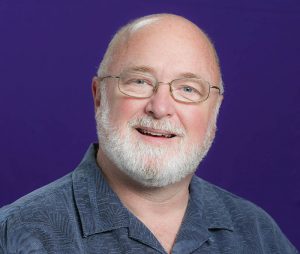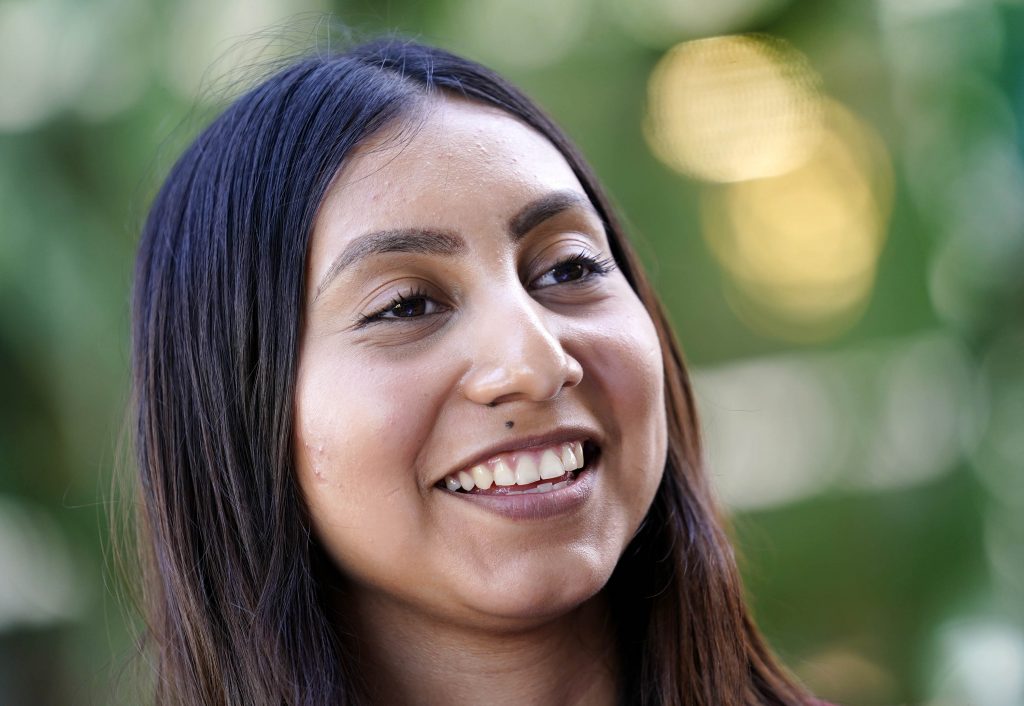
Photos by Ralph Freso
Alejandra Merino’s piece begins with contemplation.
In my family, everybody has a part to play. I am a first-generation Mexican American. That means being the perfect, grateful, resilient, well-mannered daughter, doing everything to give back to her parents.
This is not a college junior’s social media post. Her next sentence:
I have played this part so well it became my identity, my sense of self, also known as “self-formation,” a concept proposed by social theorist George Herbert Mead.
Merino is a Grand Canyon University sociology major and co-editor of the recently published Sociology/Social Work Review, the second volume in Dr. Tim Larkin’s quest to enlist students to engage with the world and their place in it and intersect it with sociology and social work concepts.

“It makes them come alive,” said Larkin. “They have to acknowledge the experiences they have had and connect it.”
It’s an engaging read, as Merino has shown in her essay “Reconsidering my Obligations as a First-Generation Mexican American.”
She writes that Mead found “developing a self emerges in stages, arising from our interactions with others.”
Merino’s identity was developed through her Latino community in nearby Maryvale, one that she writes values collectivism, and she set about her life molding herself into the vision the community and her parents expected.
“Breaking out of that was difficult,” she said in an interview, “because I came to the University without perspective. Being at GCU helped me realize I can have my own social self.
“I have tried so hard to find the balance of the collectivist culture and individualist culture. I was trying to find my place and trying to progress but not abandon my culture.”
Reading the review is an exploration into the inner lives of students. Many of the 10 works deal with identity, while Volume 1, released last year, primarily featured “sociological imagination, how a person shapes the collective and society shapes the person,” Larkin said.
“Originally, I thought students would see a (sociology/social work) concept and jump off from there. However, they see life, their life and identities, and then begin to engage a discipline. So that has been an interesting journey to be on with them.”
| NEXT PITCH SESSION FOR THE SOCIOLOGY/SOCIAL WORK REVIEW 10 a.m. Nov. 13, Building 18, Room 538 |
In this volume, Scott Twining’s “Sociological Implications of Deaf Culture” explores his experience of becoming culturally isolated and trying to understand his identity after a cochlear implant allowed him to connect to the hearing community for the first time. Ultimately, he found his identity in Christ.
Co-editor MicKenna Thompson also found her identity in social work, correlating the work of those helping professionals she witnessed with the Bible’s call to “care for each other and lift each other up.”
An essay that clearly shows the research behind these works – which Larkin distinguishes as a review, using experiential learning and writing to analyze it – is Lydia-Marie T. Mosher’s “Foreign Mirrors.”

Mosher explores the theory of Charles Cooley’s “looking glass self.” She moved numerous times throughout childhood, from America to Rwanda to China and back, each time learning how she saw herself based on how others perceived her.
“She gets reflected back to her who she is from each culture that is so different,” Larkin said.
Both Larkin and Merino connected with Yarely Orozco Paniagua’s “The Reality of Being Undocumented.” She graduated in the top 1 percent of her high school class yet struggled because of her immigration status. She explores immigration laws, and how it introduced her to the world of advocacy, a key area of social work.
“In university, one has to understand more about themselves, and in their articles that students write, you see their identity is important to them,” Merino said. “It was uplifting to have someone from that status express themselves and explore all the policies that Arizona has implemented that affect the community.”
Discovering the value of public policy and advocacy are reasons Merino hopes to attend law school, her upbringing in Maryvale encouraging her interest in “helping the communities that don’t have a voice.”
For students, getting in touch with feelings and ideas is a vital first step.
“Writing is one of the main flows we have for critical thinking,” Larkin said. “It’s not keeping a journal. It’s being able to describe and have enough self-awareness but at the same time stepping back to look at it.”
The works are helped with coaching from faculty and professional writing students and several layers of editing. Students in any field of study can submit to the next idea pitch session for Volume 3 at 10 a.m. Nov. 13 in Building 18, Room 538.

Merino wrote that she began to know herself after finding a love of reading at age 18, rethinking the guilt she felt for considering what was best for her, “apart from what my family wanted.”
Growing up in an environment where “everyone was in survival mode,” led her to dismiss her own emotional needs, she wrote. “One thing I learned was I could still give back to my parents, but it should not be at the expense of my well-being.”
Writing helped to realize her strengths and weaknesses, she said in an interview, and reading and editing other students' work helped her see the perspectives of people from varied backgrounds – and hopes readers do, too.
“Keeping in mind the different perspectives and backgrounds that may not be familiar to them, it’s important to have an open mind in reading this volume.”
She concludes her piece showing her own mind is open to new realities: Being a first-generation Mexican American, I always thought I would be the one to break generation cycles, and without knowing it, I am taking that first step.
Grand Canyon University senior writer Mike Kilen can be reached at [email protected]
***
Related content:
GCU News: Former senator encourages social workers to advocate for change















